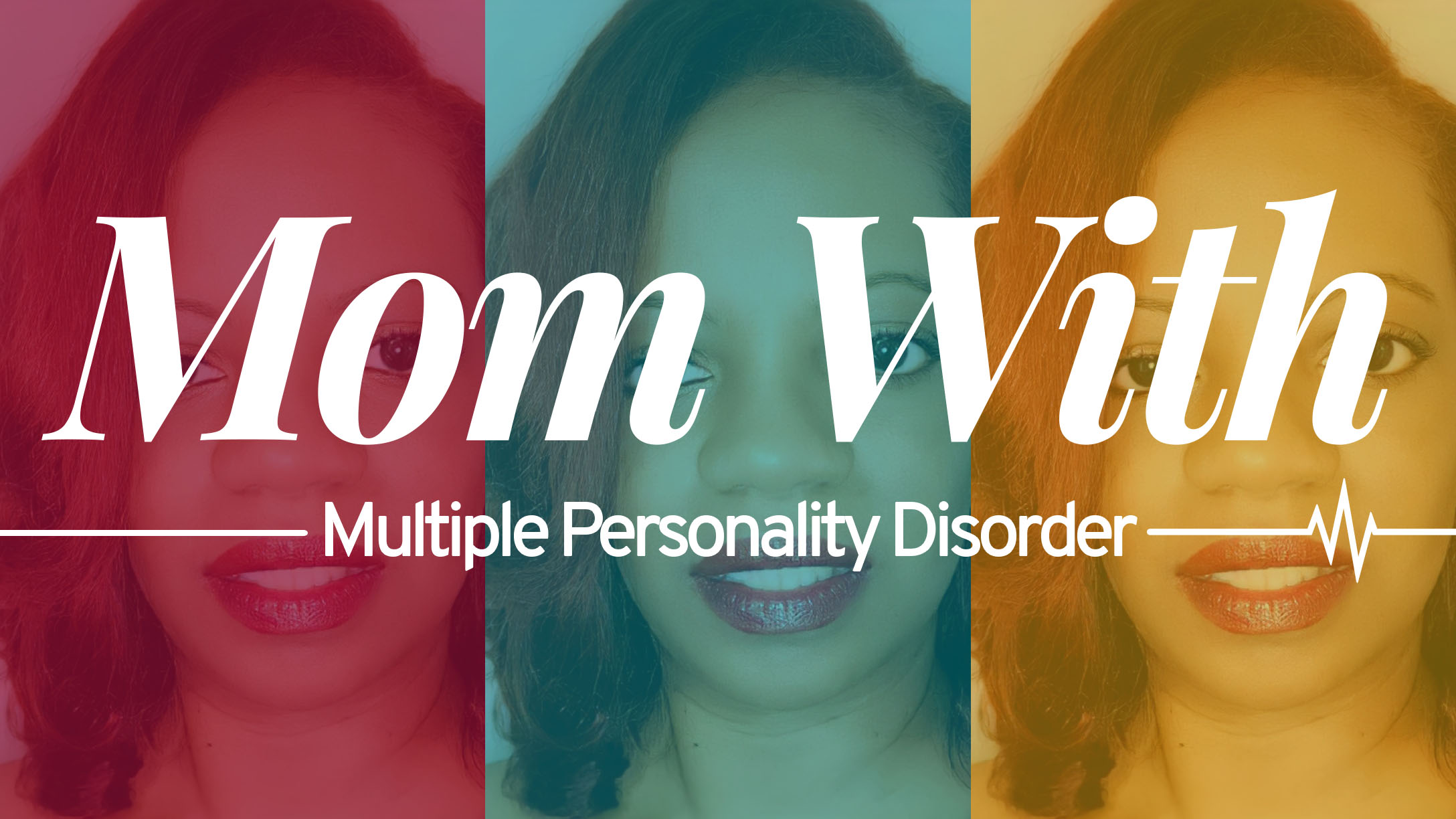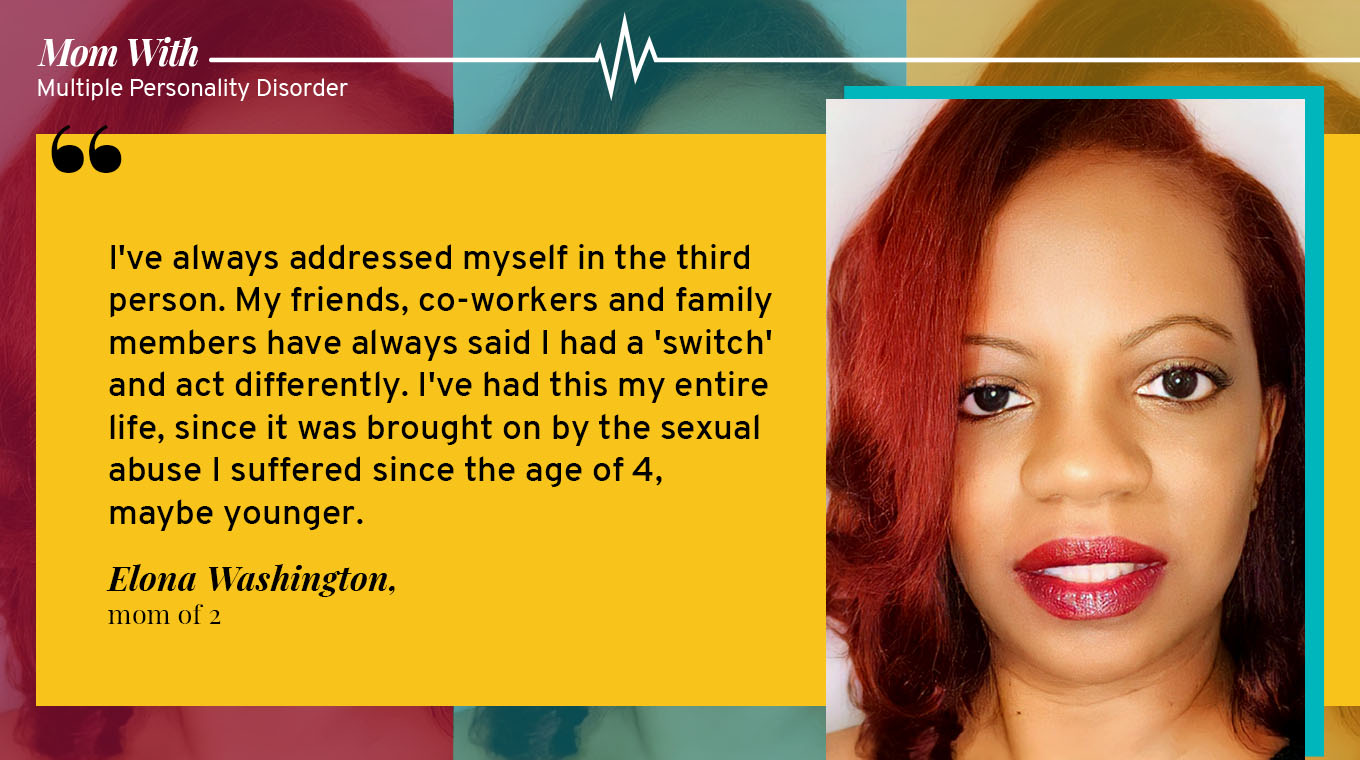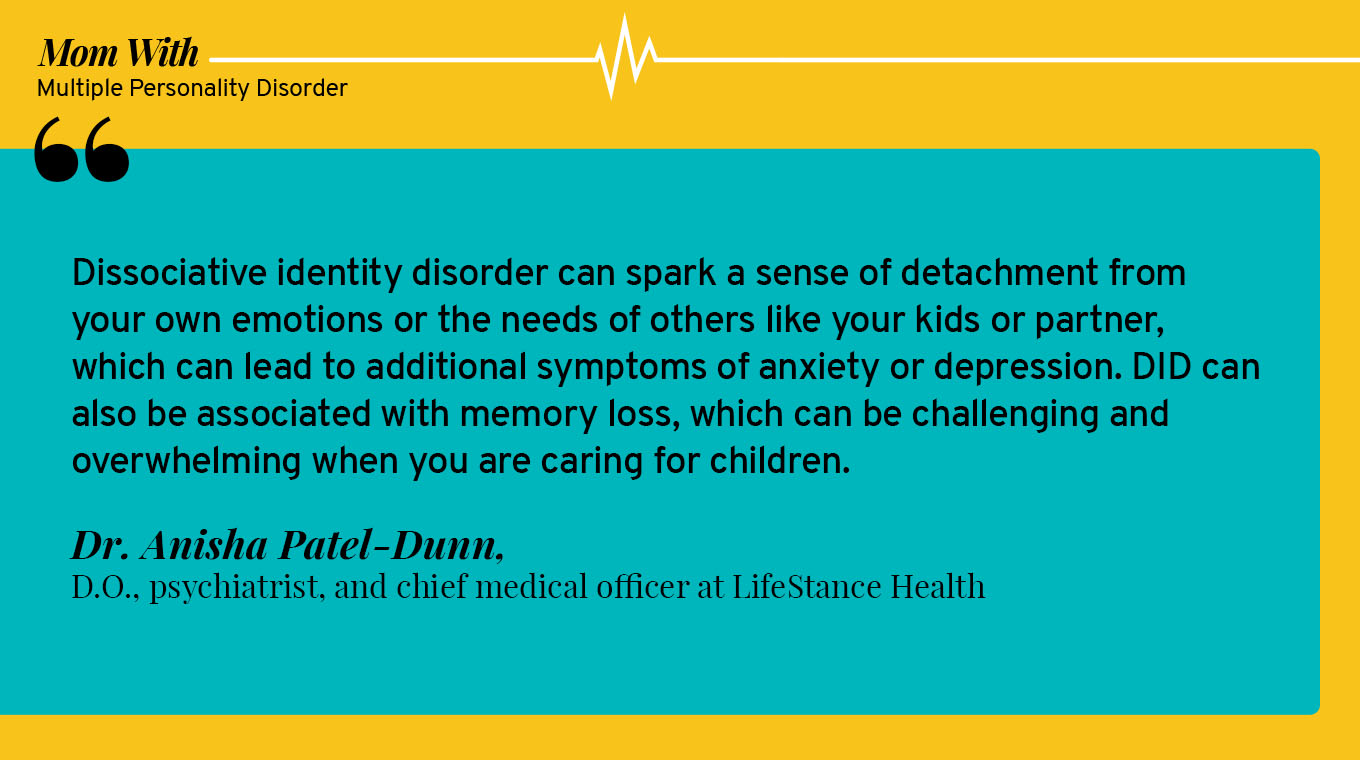
Our monthly column MOM WITH aims to redefine what it means to be a "normal" mother by focusing on how it feels to live with a mental disorder. We see you, we hear you, and we're in this together.
For most of her life, Elona Washington, a senior digital marketing manager, has suffered from issues that she could never quite explain. She has always addressed herself in the third person. Her friends, coworkers and family members have always said she has a “switch” and acts differently. Recently, Elona was diagnosed with dissociative identity disorder, or DID, more commonly referred to as multiple personality disorder.
“I've had this my entire life since it was brought on by the sexual abuse I suffered since the age of 4, maybe younger,” says Elona. “I can't recall most of the abuse or my childhood. I recently videoed myself during a 'switch.'"
Unfortunately, you are more likely to suffer from dissociative identity disorder if you suffered from some sort of abuse or trauma as a child, confirms Dr. Anisha Patel-Dunn, DO, a psychiatrist and chief medical officer at LifeStance Health. “Dissociative disorders usually develop at a young age as a way to cope with trauma or abuse.”
Elona says there have been times throughout her life when she can’t recall purchases she has made, how she got to certain locations, or what she has said or done.
“For example, a former coworker recently said that I'd call her in the morning to give her direction on a task, and in the afternoon, I'd call her with different instructions for the same task," Elona says. "I don't recall that ever happening.”
Elona realizes that a lot of her “attacks” are triggered by stress and anxiety. She has suffered from dissociative identity disorder throughout motherhood and realizes that some of the things she accused her children of were delusions. She would hear voices in her head that told her they were up to something, and she would think it was true.
Parenting felt like a struggle, and she has since apologized to her children for her behavior. She now sees a psychiatrist and psychologist and takes medication.
“Before I was a mother, it was my intention to never purposely harm them in any way; I wanted them to have peaceful and stable childhoods,” Elona says.

That is what all mothers want for their children, but because of her mental illness, she was never able to provide that. “My daughter went to a different elementary and middle school for every grade, and for two days, my son and I were homeless.”
Mothers who suffer from mental illnesses understandably struggle with day-to-day tasks, and that is even more true for Elona. On a bad day, Elona stays in bed or doesn’t leave her room. When her kids ask for a meal, she tells them to fix it themselves. She doesn’t clean or do laundry. If she sees her children do something wrong, she will yell. She realizes that many times they didn’t actually do anything wrong, so she will apologize.
For moms, DID can greatly impact daily life should it go untreated and without learned coping skills.
Elona’s “bad” days don’t look all that different from a tough day for most moms, and that is where we need to be most forgiving to ourselves and remember that life as a mother is tough. There will be good days and bad days.
A good day for Elona looks like this: “I cook breakfast, lunch, and dinner, clean up, and do laundry. I'm chatty and ask about [my kids'] day. I get updates about their lives: friends, classes, activities. We sit on the couch, watch tv, and talk. I crack jokes, pull practical jokes, and dance around the house. If they get in trouble, we talk through it. There's never any judgment.”
Mothers who suffer from mental illnesses realize that sometimes their ailments can affect the lives of their children.

That is why it is essential to be honest and open with our children about our struggles. Once we open the conversation about many of these disorders that are still seen as stigmas, especially for mothers, that is when we can make a change.
Patel-Dunn says practicing breathing exercises or developing habits that will help regulate your mood like walking outside or journaling can be beneficial.
“For everyday coping strategies, it’s important to recognize triggering emotions like acute stress or anger that might spark a loss of control,” Patel-Dunn says. “Having a network of support among friends or family members who can step in to help you if needed is important. Don’t feel embarrassed about asking for help or leaning on your support system to ensure you’re able to prioritize your own mental health.”
To keep the lines of communication open with her kids, Elona felt it was important to share her past with them, and she says they’ve always discussed her mental health challenges.
“We've discussed how it's impacted them,” she says. “Last month, my son's girlfriend texted me worried about him. He was having anxiety attacks. When he got home, I gave him a hug and we talked about it.
"He explained that he felt what I'd been feeling these last couple of months. I promised that I'd do better and assured him that he could talk to me about anything at any time, even when I was anxious or depressed.”
In a weird way, our mental illnesses become our children’s in the sense that what we feel and experience, our children do too, in their own way. A perfect mother does not exist, and it’s important to remember that, especially when dealing with a bad day.
“As moms, we should be mindful of how our illnesses affect our children and transparent (in an age-appropriate fashion) about what we're going through, especially during bad days,” Elona says.
“Have a plan in place for bad days. When I tell my son I'm feeling depressed, he knows to make his own meals and check in on me periodically. And always remember that there is no perfect or "normal" mom, and we should give ourselves grace.”







